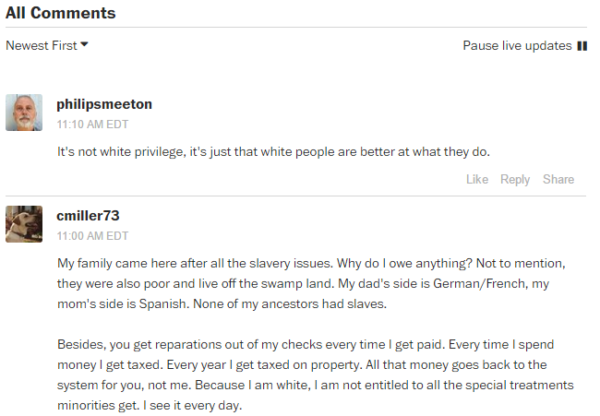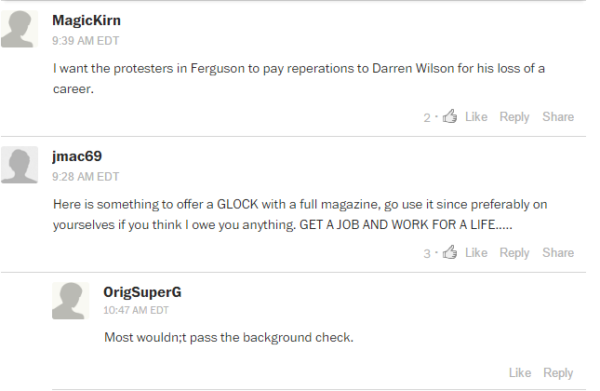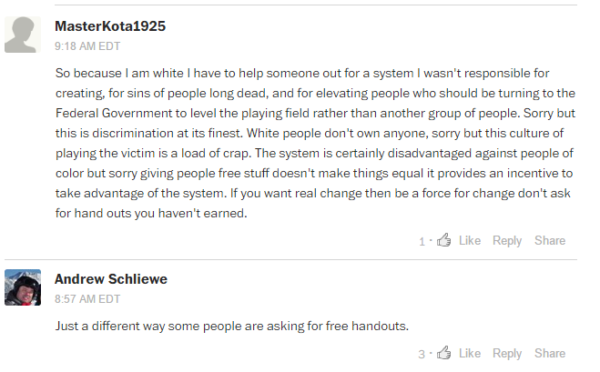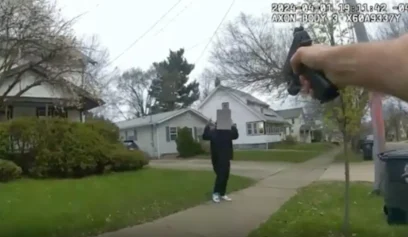
Founder of Reparations website, Natasha Marin. Image courtesy of Reparations.me
A young indigenous woman from New York needs travel assistance for a family trip to North Dakota. Meanwhile, a novice entrepreneur is in search of a marketing and business coach to help get her company off the ground.
So who do they turn to for help? White folk.
They, along with dozens of other people of color, have taken to a new website called ‘Reparations’ to request assistance from the group of people who’ve oppressed them for decades. Likewise, white people use the site to offer their belongings and services to people of color who might need them.
The goal for website creator Natasha Marin, 37, is to create a community of sharing.
“I invite People of Color to ask for what we need to feel better, be happier, be more productive by posting in this space,” Marin wrote on the site’s About page. “These may be both material and immaterial requests.”
“I invite people who identify as White to offer services or contributions to People of Color in need of time, energy, substantive care, and support,” she continued.
According to the site, Marin is a Seattle-based artist working across various disciplines and media platforms “to create opportunities for meaningful IRL and digital engagement.” Reparations actually began as a social media experiment on Facebook early last month, but it has since blossomed into a full-blown site on which thousands are participating.
“I think people are asking themselves: How can I be just a little bit better?” Marin said. “It’s encouraging to see people remember that it feels good to be helpful.”
Per the Washington Post, the basic concept behind Reparations lies in the fact that white people have created a divisive political and cultural society that discriminates against, oppresses and excludes people of color everyday. Therefore, the responsibility lies on the shoulders of white folk to level the playing field for people of color who are disadvantaged and/or threatened by racism and racial inequality, the publication reports.
The idea of reparations has long been a hot-button issue, as the United States continues to struggle over whether to pay restitution to its Black citizens for centuries of slavery and discrimination. But the case in favor of reparations is a strong one. According to Atlanta Black Star, the institution of slavery created the economic basis for modern capitalism and turned the U.S. into the wealthiest nation in the world.
To make up for the dark past, the National Legal and Policy Center placed reparations at $15 trillion, which would involve paying $500,000 to every descendant of an enslaved Black American.
Despite this fact, many still don’t believe restitution should be paid to people of color. A 2016 Fusion Issues Poll revealed that 62 percent of millennials are opposed to the government providing reparations to African-Americans for slavery, while 32 percent expressed support for the measure. The results were even more striking when examined along racial lines; 62 percent of Blacks and 40 percent of Hispanics said they supported reparations, while 21 percent of whites expressed favor as well.
Marin said the forum isn’t about atoning for slavery, however. Instead, it’s to make up for the current-day oppression and discrimination of people of color.
“It’s about reparations for things that happened earlier today, for yesterday, for last Thursday,” she told the Washington Post. “This is for the present tense.”
Marin even offered a few scenarios of how she would like to see her site utilized.
POC 1: I need a massage. This week.
White Person 1: [posts Groupon with code for redemption]POC2: I need therapy. I can spend $10 a session.
White Person 2: [posts contact information to a therapist who they have made arrangements with.]
A demoralizing scroll through her Facebook feed following the tragic deaths of Black men at the hands of police is what prompted Marin to launch Reparations in the first place, the publications reports.
“I realized that the people I connected to were largely disheartened and powerless,” she said. “We were being bombarded by death and fear.”
Marin began by inviting her friends of color to the Facebook group and encouraged them to post about what they needed to “feel better, be happier, be more productive.” She later invited her white friends to offer what they could to meet the needs of her minority friends.
“If it had just been 50 people and some connections were made, generosity shown and gratitude shown, I would’ve been happy,” Marin said.
Thus, Reparations was born.
But it hasn’t been all rainbows and sunshine for the concept artist, however. Since the site launched, Marin has been pummeled with disgustingly racist comments and reactions from online critics. She has even received death threats, according to the Washington Post.
“You can tell the whole world that I was that naive,” Marin said. “I don’t feel like I deserve the hatred I’ve been getting out of this.”
Below are a few examples of the racist remarks left in the comments section of the Washington Post article highlighting Marin and her website:
Despite the backlash, Marin has devised a way to handle the trolls by setting up what she calls a “troll fund.” Site users, dubbed Troll Slayers, take a pledge to donate $1 for every negative comment posted. That money is then set aside in a fund that goes toward those seeking financial assistance on the website.
“It’s an effective way to monetize hatred and turn it into something worthwhile,” Marin said.





